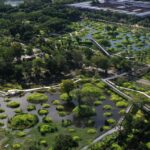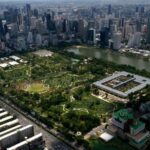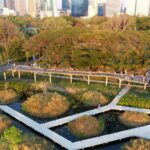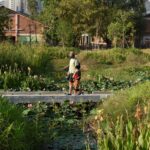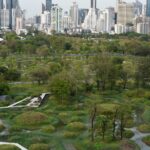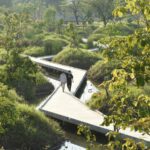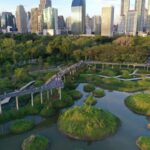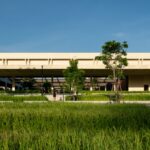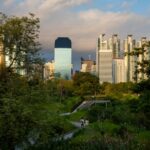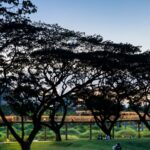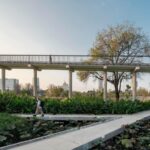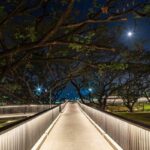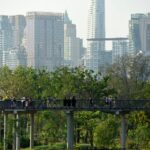Benjakitti Forest Park: A Holistic Ecosystem in Bangkok
Introduction
Benjakitti Forest Park, nestled in the heart of Khlong Toei, Thailand, stands as a testament to sustainable landscape architecture. Designed collaboratively by Arsomsilp Community and Environmental Architect and Turenscape, this park redefines urban green spaces while addressing ecological and hydrological challenges.
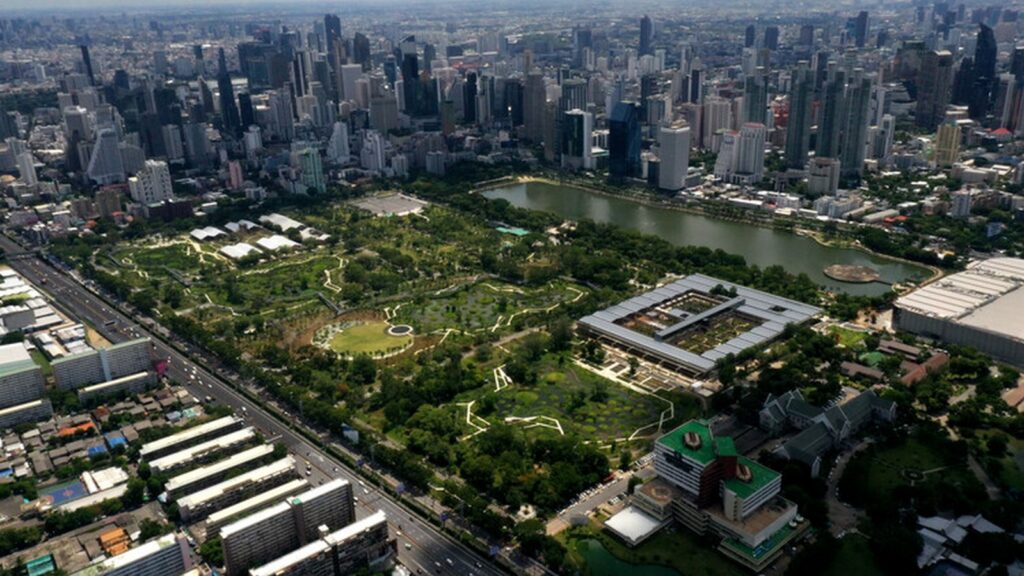
Transforming Urban Space
Formerly the site of a tobacco factory, Benjakitti Park spans an impressive 720,000 sq.m. With a vision to enhance public understanding of ecology and foster ecological park development, the park serves as a vital oasis in the bustling city of Bangkok.
Ecological Innovation
To combat the challenges of floods and droughts prevalent in Thailand’s monsoon climate, the park acts as a sponge, retaining rainwater during the wet season and releasing it gradually during dry periods. Utilizing bioremediation techniques, contaminated water from the nearby Phai Sing To canal is purified, producing clean water for daily use.
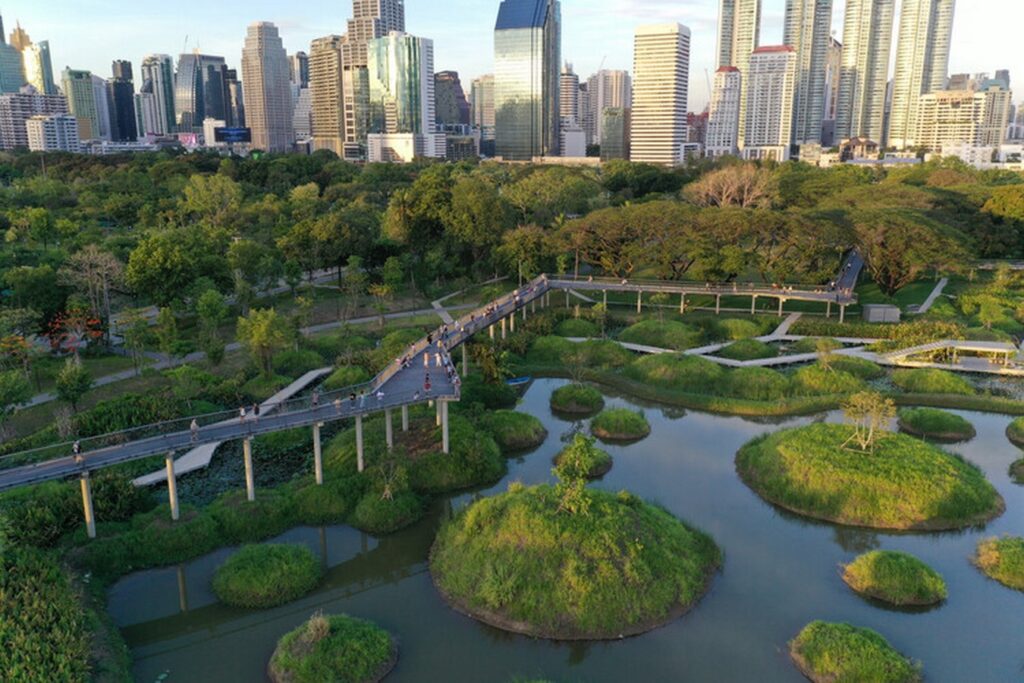
Sustainable Design Principles
By elevating tree roots and implementing raceways for drainage, the park mitigates flooding risks. Through meticulous earthwork techniques and the reuse of site materials, including stone and concrete, the park’s landscape is sculpted to support a diverse native plant community.
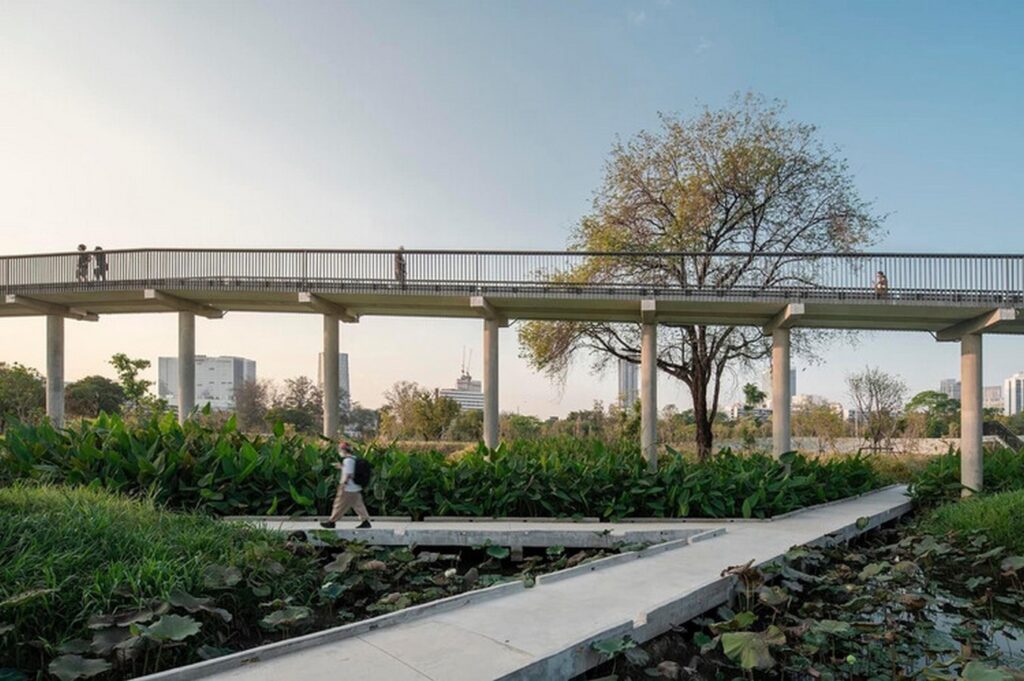
Inclusive and Accessible Design
Accessible to all, the park features a 1.67 km long skywalk, designed with universal accessibility in mind. This leisure and nature learning path connects various spaces within the park, including bicycle ways, shaded paths, a healing garden, and a waterfront pavilion with an amphitheater.
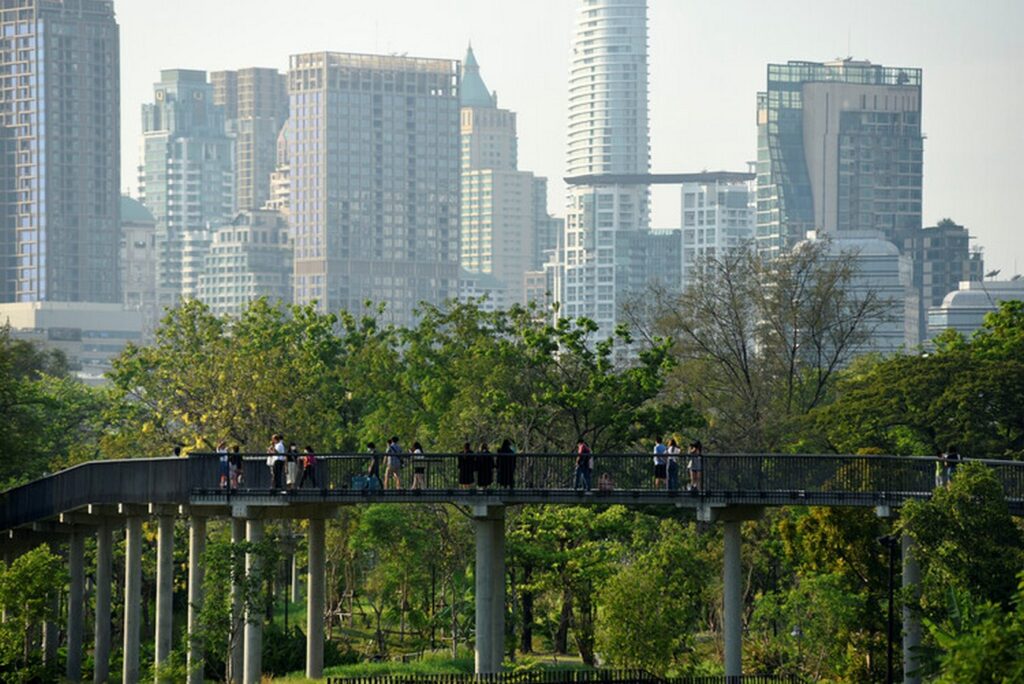
Adaptive Reuse and Preservation
Former tobacco factory buildings are repurposed into museums and sports centers, incorporating sustainable features such as sunroofs and high-ceiling ventilation systems. These structures serve as educational and recreational hubs within the park.
Conclusion
Benjakitti Forest Park represents a harmonious blend of ecological conservation, community engagement, and sustainable design. As a biodiverse botanical classroom, it offers Bangkokians a sanctuary to connect with nature, learn about ecology, and foster a sense of stewardship towards the environment. Through innovative design and adaptive reuse, this park sets a benchmark for urban green spaces worldwide.



